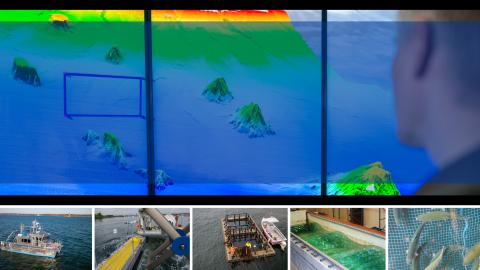
Learn more about Blue Economy related research and resources at UNH with direct access to UNH professors, researchers, and industry experts.
This event, which was held on January 19, 2022, was designed to provide industry attendees with an opportunity to network and collaborate with UNH researchers who cover a wide range of expertise. The goal for these industry-focused events is to create opportunities for new partnerships between the university and the business community, ultimately to encourage economic development.
We've compiled the virtual tours and the bios/brief video introductions from the researchers that were featured during the sandpit so you can learn more about their work. Feel free to reach out to the researchers directly or contact Marc Eichenberger, director of corporate engagement for more information about collaborating with UNH.
This event is hosted by UNHInnovation with the help of marketing partners the World Ocean Council and the National Offshore Wind R&D Consortium.
Marc Eichenberger
Associate Vice President and Chief Business Development and Innovation Officer
marc.eichenberger@unh.edu
(603) 862-5446
VIRTUAL TOURS
Take a Virtual Tour of the Judd Gregg Marine Research Complex
Take a Virtual Tour of the Jere A. Chase Ocean Engineering Laboratory
Meet the Researchers
- David Burdick, Ph.D.Research Associate Professor of Coastal Ecology and Restoration
- Brian Calder, Ph.D.Research Associate Professor and Associate Director at CCOM/JHC
- Michael Chambers, Ph.D.Aquaculture Specialist, Research Associate Professor School of Marine Science and Ocean Engineering
- Katharine Duderstadt, Ph.D.Atmospheric Scientist, Earth Systems Research Center
- Marc EichenbergerDirector of Corporate Engagement
- Diane Foster, Ph.D.Director, UNH School of Marine Science and Ocean Engineering and Professor, Mechanical and Ocean Engineering
- Nathan Furey, Ph.D.Assistant Professor in the Department of Biological Sciences
- Elizabeth Harvey, Ph.D.Biological Oceanographer and Microbial Ecologist
- Nathan Laxague, Ph.D.Assistant Professor, Ocean Engineering and Mechanical Engineering
- Tom Lippmann, Ph.D. Professor, Earth Sciences, Ocean Engineering
- Tracy Mandel, Ph.D.Assistant Professor, Mechanical Engineering, Ocean Engineering
- Jennifer Miksis-Olds, Ph.D.Director, Center for Acoustics Research & Education
- Gregg Moore, Ph.D.Associate Professor, Biological Sciences, UNH Collections
- Michael Palace, Ph.D.Associate Professor, Earth Sciences
- David Plachetzki, Ph.D.Associate Professor, Molecular, Cellular, & Biomedical Sciences
- May-Win Thein, Ph.D.Associate Professor of Mechanical Engineering & Ocean Engineering; Director, Systems Design Ph.D. Program
- Alison Watts, Ph.D.Research Assistant Professor, Civil and Environmental Engineering
- Easton White, Ph.D.Assistant Professor, Biological Sciences
- Martin Wosnik, Ph.D.Associate Professor, Mechanical Engineering, Ocean Engineering; Director, Center for Ocean Engineering
- Kai Ziervogel, Ph.D.Director, Ocean Process Analysis Laboratory; Associate Research Professor
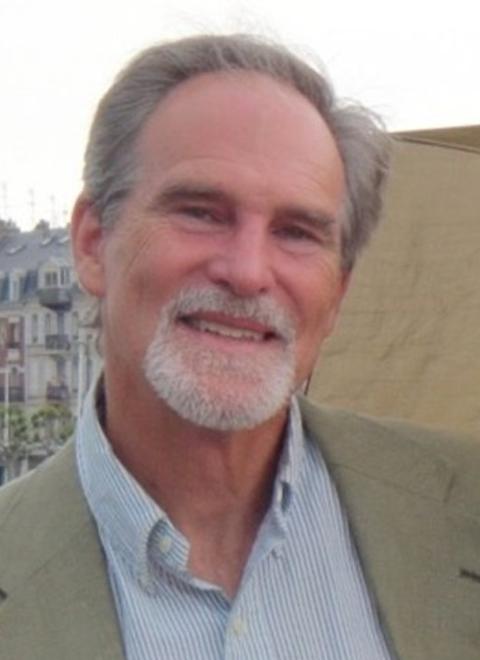
David Burdick, Ph.D. - Research Associate Professor of Coastal Ecology and Restoration
Dr. David Burdick is Research Associate Professor of Coastal Ecology and Restoration in the Department of Natural Resources at the University of New Hampshire, where he has taught wetlands courses over the past twenty years. His study of coastal science spans 35 years, concentrating on coastal ecosystems, assessing human impacts, and planning, implementing and assessing habitat restoration at the Jackson Estuarine Laboratory, where he serves as Interim Director. In 2012 he was awarded the Susan Snow-Cotter Visionary Award from the Gulf of Maine Council for the Marine Environment. He recently published a book with Charles Roman to translate and extend lessons learned from tidal restoration of salt marshes in the Northeast US and Canada. Outreach products include Dock Design with the Environment in Mind (to protect eelgrass), Eelgrass Site Selection Model, and two habitat restoration atlases for coastal New Hampshire. Recent projects include: shoreline rehabilitation at sites in NH and Maine, a coastal resilience initiative to plan for sea level rise in Portsmouth NH, and measuring responses of salt marshes to rising sea level, including blue carbon.
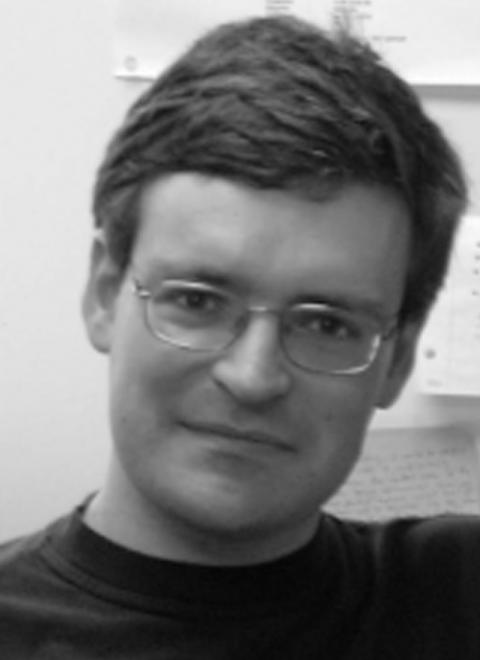
Brian Calder, Ph.D. - Research Associate Professor and Associate Director at CCOM/JHC
Brian Calder is the Center’s Associate Director. He has a Ph.D. in Electrical and Electronic Engineering, completing his thesis on Bayesian methods in Sidescan Sonar processing in 1997. Since then he has worked on a number of signal processing problems, including real-time grain size analysis, seismic processing, and wave-field modeling for shallow seismic applications.
His research interests include methods for error modeling, propagation and visualization, and adaptive sonar backscatter modeling. His work has focused on developing methods for textural analysis of seafloor sonar data, as well as exploring innovative approaches to target detection and seafloor property extraction.
Dr. Calder is currently focusing on statistically robust automated data cleaning approaches and tracing uncertainty in hydrographic data.
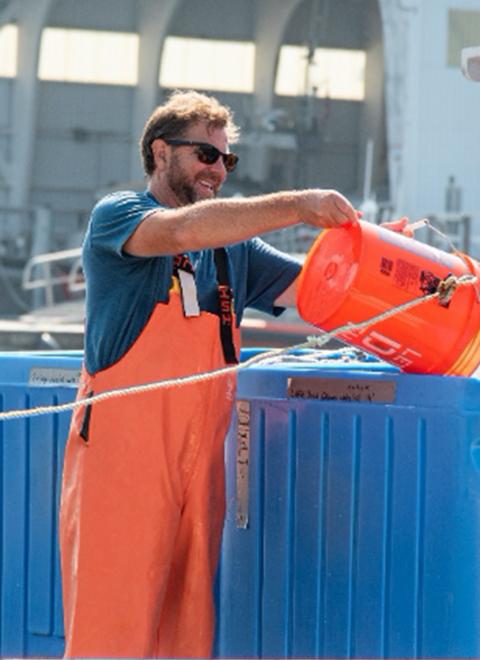
Michael Chambers, Ph.D. - Aquaculture Specialist, Research Associate Professor School of Marine Science and Ocean Engineering
Michael has been advancing open ocean farming technologies for over 25 years in the US and Abroad. In the US, he has managed submerged cage culture projects in the Gulf of Mexico, Hawaii and the North Atlantic. In 2000, he took the role as Project Manager at the University of New Hampshire’s (UNH) Open Ocean Aquaculture Project and the Atlantic Marine Aquaculture Center. This project was in the forefront of developing biological, engineering, and environmental technologies for the commercialization of offshore aquaculture in the US. Numerous marine culture systems were deployed, and numerous species were successfully cultured at the demonstration farm located 13 km offshore in 52m water depth. In addition, he has been training fishermen and farmers on small scale, integrated multi-trophic aquaculture of steelhead trout, blue mussels, and sugar kelp on floating platforms. More recently and funded by the Department of Energy, Michael’s been involved with multiple US institutions to develop offshore macroalgae farms for biofuel production. Internationally, Michael has engaged aquaculture projects in the Black Sea (US AID), in Norway (SINTEF Oceans and NTNU), in the Mediterranean (University and private), New Zealand (Cawthron Institute), and Cuba (federal and non-profit). Michael received a BS (Biology) from the University of Wisconsin, a MS (Mariculture) from Texas A&M and a Ph.D. (Zoology) from the University of New Hampshire. Lastly, he maintains a Master Captain’s license (100 ton) and has over 5000 hours logged diving in the Pacific, Atlantic, Gulf of Mexico and Caribbean oceans.
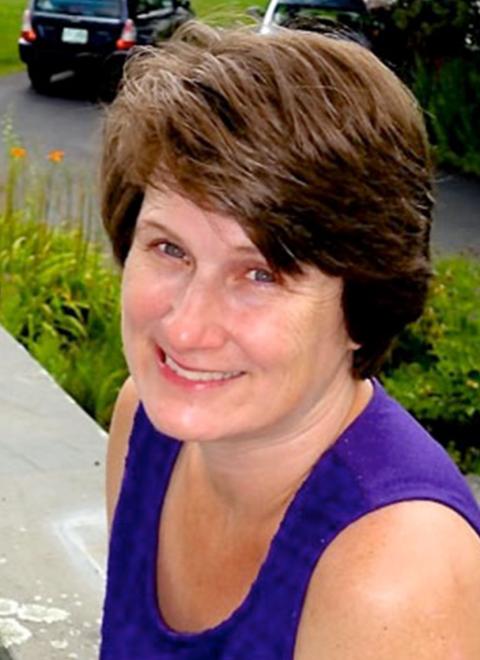
Katharine Duderstadt, Ph.D. - Atmospheric Scientist, Earth Systems Research Center
Katharine Duderstadt is an Atmospheric Scientist in the Earth Systems Research Center at the University of New Hampshire (UNH). While her disciplinary research focuses on atmospheric chemistry and transport modeling, she enjoys working with interdisciplinary problems addressing complex societal concerns. Projects range from studying polluted plumes from the Northeast urban corridor as they travel over the North Atlantic, searching for historical solar storms in polar ice cores, and exploring links between New England and a warming Arctic. She also helps coordinate the UNH Arctic Network, the New England Arctic Network (NEAN), and the CARPE NSF Research Traineeship program at UNH. Having taught in high school and university classrooms and served in the US Peace Corps, she maintains a strong commitment to training the next generation of environmental scientists and global leaders. Dr. Duderstadt received an A.B. in English from Harvard College and a PhD in Atmospheric and Space Sciences from the University of Michigan.
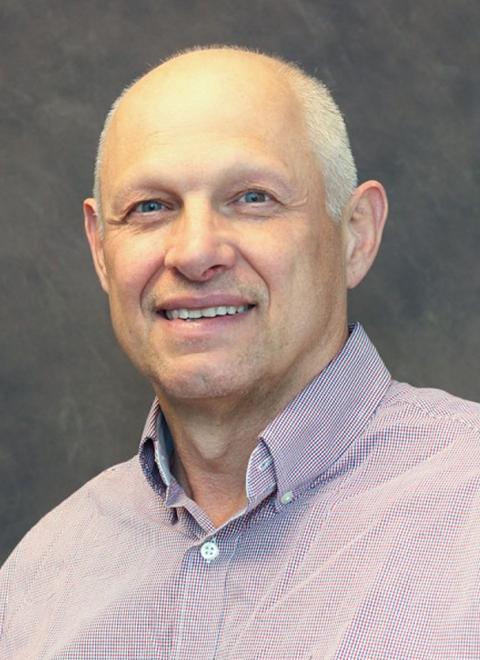
Marc Eichenberger - Director of Corporate Engagement
Marc Eichenberger is the Director of Corporate Engagement at the University of New Hampshire. He brings a wealth of experience in bridging the corporate and university ecosystems, intellectual property (IP) commercialization and business development.
Most recently, Marc help launch venture creation company, Allied Minds. As second employee and serving as the company’s Chief Operating Officer, over 10 years he helped grow this start-up from inception to a public company. Allied Minds commercializes IP from leading US universities, national labs and corporations. The company forms, funds and operates a portfolio of companies based on this IP with the objective of delivering attractive long-term returns to investors and stakeholders.
Prior to helping found Allied Minds, Marc spent over a decade in management consulting mostly with AT Kearney. There he advised mid-size and Fortune 500 companies on a variety of strategy, operations and supply chain issues. His clients represented a spectrum of aerospace, high-technology, services and industrial companies.
Marc graduated with a MBA from The Wharton School of Business, University of Pennsylvania and is a Chartered Financial Analyst (CFA).
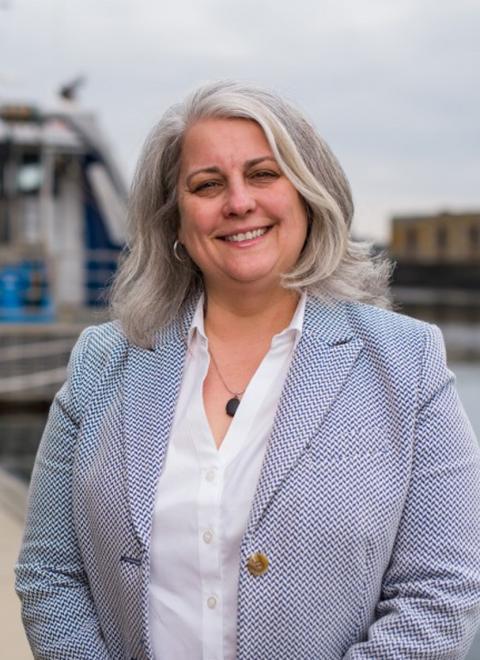
Diane Foster, Ph.D. - Director, UNH School of Marine Science and Ocean Engineering and Professor, Mechanical and Ocean Engineering
Prof. Foster joined the Mechanical Engineering faculty at UNH Fall 2008. Prior to joining UNH, Prof. Foster was an associate professor in the Department of Civil and Environmental Engineering and Geodetic Sciences at the Ohio State University in Columbus.
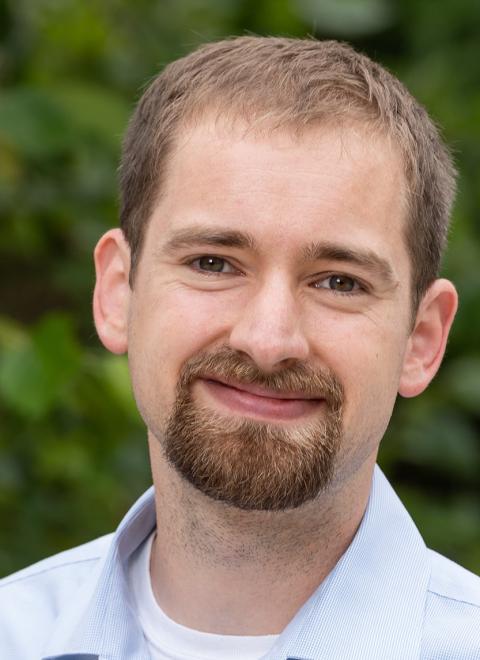
Nathan Furey, Ph.D. - Assistant Professor in the Department of Biological Sciences
Dr. Nathan Furey is an Assistant Professor in the Department of Biological Sciences at UNH, and heads the Fish and Movement Ecology Lab. His research attempts to determine the motivations and consequences of animal movements through space and time, focusing on fishes of management and conservation concern. Nathan uses acoustic telemetry to track the movements of fish and crustaceans in estuaries and coastal waters to determine space use, habitat requirements, migration timing, and survival. Because animal movements require energy, the Fish and Movement Ecology Lab also conduct research in bioenergetics and predator-prey interactions. Knowing who-eats-who and quantifying diet quality allow us to predict consequences of ecosystem change due to warming waters, changes to habitat, or other anthropogenic impacts. Nathan is currently using quantitative modeling to understand how shifts in marine food web structure affect the movements, feeding, and potential growth of commercially important species in the Gulf of Maine and the Arctic.

Elizabeth Harvey, Ph.D. - Biological Oceanographer and Microbial Ecologist
Dr. Elizabeth Harvey is a biological oceanographer and microbial ecologist interested in particle imaging, water quality, and the role microbes can play in supporting aquaculture. She has extensive experience in cultivating, identifying, and enumerating marine microbes in the natural environment. She uses a wide range of techniques in her research including molecular methods, image analysis, and flow cytometry.
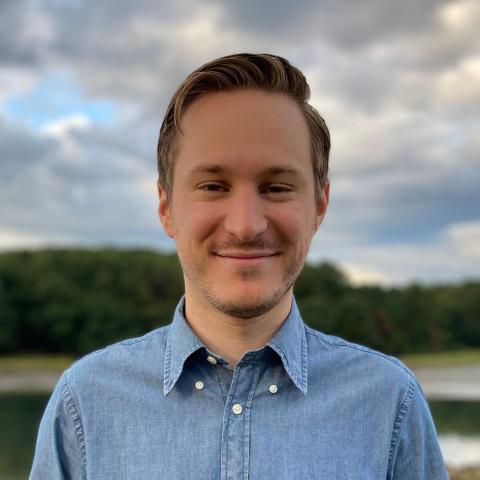
Nathan Laxague, Ph.D. - Assistant Professor, Ocean Engineering and Mechanical Engineering
Nathan is an Assistant Professor in the Department of Mechanical Engineering and the Center for Ocean Engineering at UNH. His primary research interest is in applying experimental/observational techniques to understand physical air-sea interaction processes, with a focus on ocean surface waves and boundary layer fluid dynamics. Prior to his arrival at UNH in Fall of 2020, he was a postdoctoral research scientist at Lamont-Doherty Earth Observatory of Columbia University. He received his Ph.D. in 2016 at the University of Miami’s Rosenstiel School of Marine and Atmospheric Science.
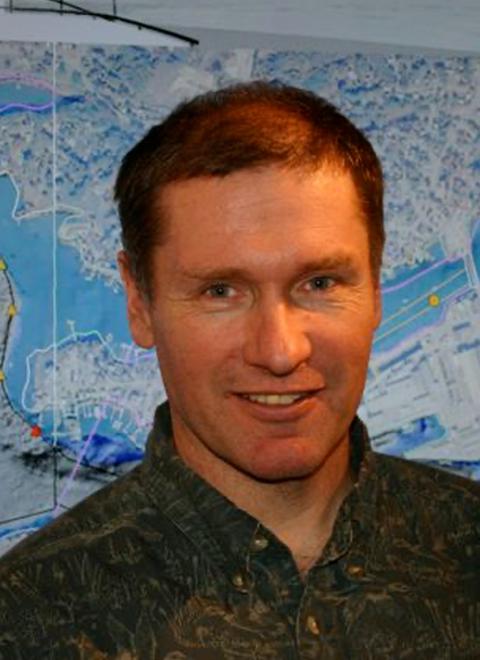
Tom Lippmann, Ph.D. - Professor, Earth Sciences, Ocean Engineering
Tom Lippmann is a Professor of Oceanography in the Department of Earth Sciences at the University of New Hampshire. He is also affiliated with the UNH School of Marine Science and Ocean Engineering, Center for Ocean Engineering, and Center for Coastal and Ocean Mapping. He is also the Director of the Oceanography Graduate Program. His research is on hydrodynamics and particle transport in shallow marine environments, including sandy beaches and the coastal ocean, tidal inlets, and estuaries. His research approach includes combinations of theoretical development, in situ field observations from various platforms, and numerical modeling.
Prof. Lippmann received his Bachelor’s degree (1985) in Mathematics and Biology from Linfield College in McMinnville, OR, and his Master’s (1989) and Doctoral (1992) degrees in Oceanography from Oregon State University in Corvallis, OR. He was a National Research Council Postdoctoral Fellow at the Naval Postgraduate School in Monterey, CA, from 1992-1995. He previously held Research Faculty appointments at the Center for Coastal Studies, Scripps Institution of Oceanography in La Jolla, CA (1995-2003), and the Byrd Polar Research Center, The Ohio State University in Columbus, OH (1999-2008). He has been at the University of New Hampshire since 2008.
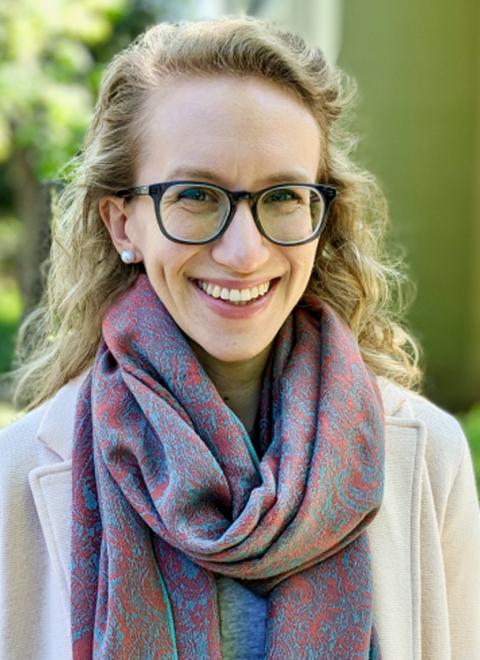
Tracy Mandel, Ph.D. - Assistant Professor, Mechanical Engineering, Ocean Engineering
Prof. Tracy Mandel joined the Mechanical and Ocean Engineering faculty at UNH in January 2020. Prior to joining the faculty at UNH, she received her M.S. and Ph.D. from Stanford University in the Bob and Norma Street Environmental Fluid Mechanics Laboratory, and was a postdoctoral scholar at the University of California, Merced.
Prof. Mandel’s research explores several problems in environmental fluid mechanics, with a focus on laboratory experiments. She is particularly interested in the surface signature of systems that have complex subsurface hydrodynamics (such as a seagrass bed or an oil plume), and in developing simplified models that can “invert” this interior behavior by measuring the free surface. She also studies near-shore circulation and coastal dynamics.
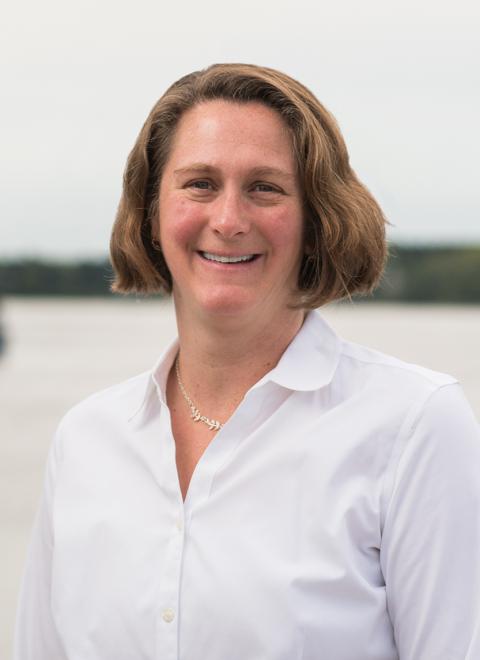
Jennifer Miksis-Olds, Ph.D. - Director, Center for Acoustics Research & Education
Dr. Jennifer L. Miksis-Olds is the Director of the Center for Acoustics Research & Education at the University of New Hampshire. Dr. Miksis-Olds was the Vice-Chair of the Board of Trustees for the Consortium for Ocean Leadership (2020-2021) and currently serves as the university Member Representative. She is a member of the Scientific Committee of the International Quiet Ocean Experiment Program and serves as a Scientific Advisor to the Sound and Marine Life Joint Industry Programme. Dr. Miksis-Olds was the recipient of an Office of Naval Research Young Investigator Program award in 2011 and the Presidential Early Career Award in Science and Engineering in 2013. Dr. Miksis-Olds received a A.B. cum laude in Biology from Harvard University, M.S. in Biology from the University of Massachusetts Dartmouth, and Ph.D. from the University of Rhode Island. Her primary research interests are patterns and trends in ocean soundscapes, animal behavior and communication, and the environmental effects of anthropogenic activities.
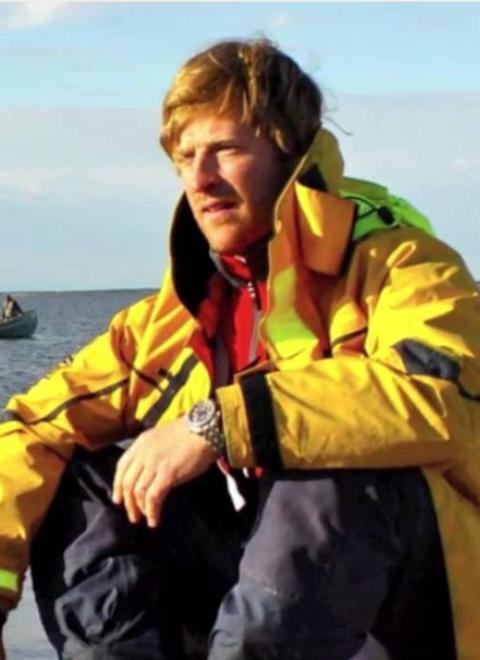
Gregg Moore, Ph.D. - Associate Professor, Biological Sciences, UNH Collections
My primary research interests are focused upon coastal wetland restoration ecology, conservation and land management within both temperate and tropical habitats. My work has had a particular emphasis on the anthropogenic impacts to wetlands and the management of invasive species within these habitats. Through short and long-term studies, I examine the interplay between plant community patterns and sediment biogeochemistry seeking to gain an increased understanding of the causes of habitat loss, plant species invasions, and for developing innovative strategies for restoring native plant communities, including promoting rare species. The tidal marshes of the Great Bay Estuary and coastal plant communities of Great Marsh have provided an excellent venue for examining the factors affecting native and invasive plant communities, while the mangroves of the Eastern Caribbean have been my base for examining community-based restoration and conservation strategies.
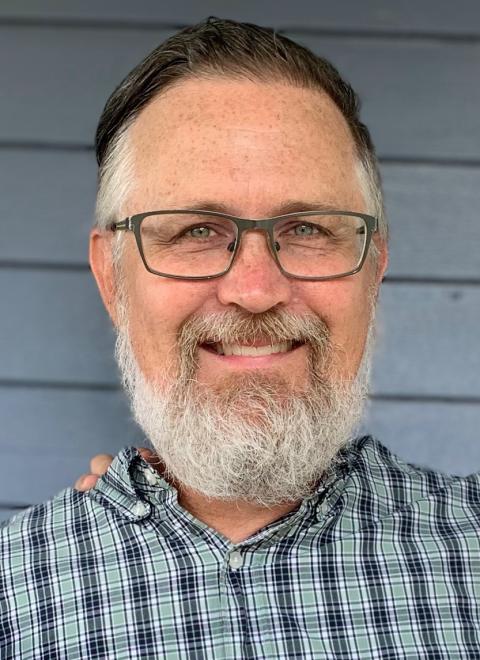
Michael Palace, Ph.D. - Associate Professor, Earth Sciences
I am an environmental scientist focusing on remote sensing and geospatial science. I use satellites, airborne, and drone based platforms in my research. This research includes characterizing forests and vegetation, water quality in lakes, and snow dynamics. I am also involved with archaeologists in finding and interpreting past human settlement patterns. I am a former TEDx speaker and an Associate Professor in the Department of Earth Sciences in CEPS and the Earth System Research Center at the Institute of Earth, Oceans, and Space at the University of New Hampshire. I have been a Principal Investigator on ten major remote sensing projects, five completed and five active. My research projects have received external funding from NASA, DoD, NSF, USAID, and USGS. Production of electronic music and audio field recording, as a semi-professional, is a focus of my creative outlet. I have numerous albums under the pseudonym “horchata” and have made many field recordings during my trips to Amazonia and Arctic locations. Finally, I wrote the soundtrack to the documentary film about global warming titled “Out of Balance: ExxonMobil’s Impact on Climate Change.
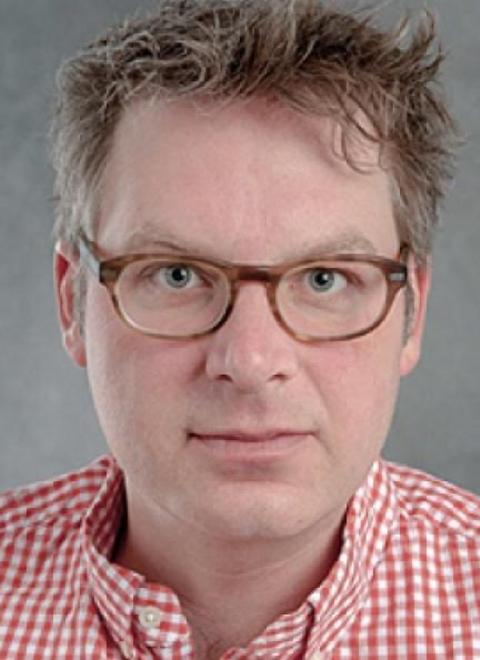
David Plachetzki, Ph.D. - Associate Professor, Molecular, Cellular, & Biomedical Sciences
David Plachetzki is an associate professor in the Department of Molecular, Cellular and Biomedical sciences at the University of New Hampshire. Dr. Plachetzki received his Ph.D. from the University of California at Santa Barbara and spent his postdoctoral years at the University of California at Davis. The Plachetzki lab is interested in how marine invertebrate animals have evolved to interact with their environment. We work on several different experimental systems, employing genomics, various types of wet lab experimentation and field research to address this question. The Plachetzki lab has conducted field work in the Gulf of Maine and the Cayman Islands in the Atlantic, and the Channel Islands, the San Juan Islands, and the Galapagos archipelago in the Pacific. We have received funding through multiple grants from the National Science Foundation and the United States Department of Agriculture.
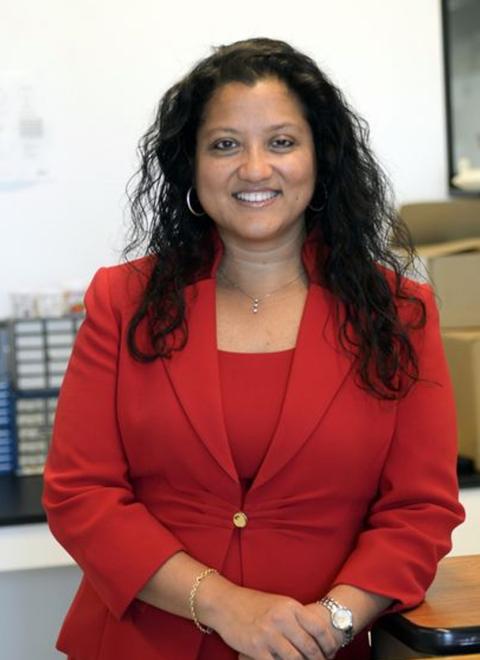
May-Win Thein, Ph.D. - Associate Professor of Mechanical Engineering & Ocean Engineering; Director, Systems Design Ph.D. Program
Dr. Thein joined the Department of Mechanical Engineering in 1999. Since then, she has served as a visiting scholar/fellow and/or lecturer the NAVSEA Naval Underwater Warfare Center (NUWC) Division Keyport, at the Flight Dynamics Analysis Branch at the NASA Goddard Space Flight Center, the Department of Applied Mathematics at the University of Sheffield (Sheffield, UK), the Department of Engineering at the University of Leicester (Leicester, UK), and the Institute of Industrial and Control Engineering at the Polytechnic University of Catalonia (Barcelona, Spain). Dr. Thein was also named a United Kingdom Royal Society Fellow in 2007 for her international collaborative research in spacecraft control. She has held memberships in AACC, AIAA, ASME, IEEE (CSS IAC, WiC, WIE), Phi Eta Sigma, Pi Tau Sigma, SAE, Sigma Xi, SWE, and Tau Beta Pi.
Dr. Thein’s field of specialization is in the area of System Dynamics and Control. Her studies involve nonlinear estimation and control with particular emphasis on applications for autonomous surface/subsurface, space, air, and ground vehicles. Such applications include multi/cross-platform vehicle control of Remotely Operated Vehicles (ROVs), Unpiloted Underwater Vehicles (UUVs), Autonomous Surface Vehicles (ASVs), Unpiloted Aerial Vehicles (UAVs) and a combination/fleet thereof; automated real-time path planning and obstacle avoidance; development of biomimetic (robotic) fish for open ocean aquaculture; performance evaluation of system autonomy; UUV systems identification and control for shallow water and coastal zones; ASV platform control in various sea states; UUV/ROV-based remote sensing; UUV/ASV-based magnetic anomaly and unexploded ordinance detection; real-time platform speed control via machine vision/learning; decentralized swarm/formation control via Artificial Potential Fields; optimal search and exploration via Particle Swarm Optimization; and spacecraft attitude and orbit determination and control.
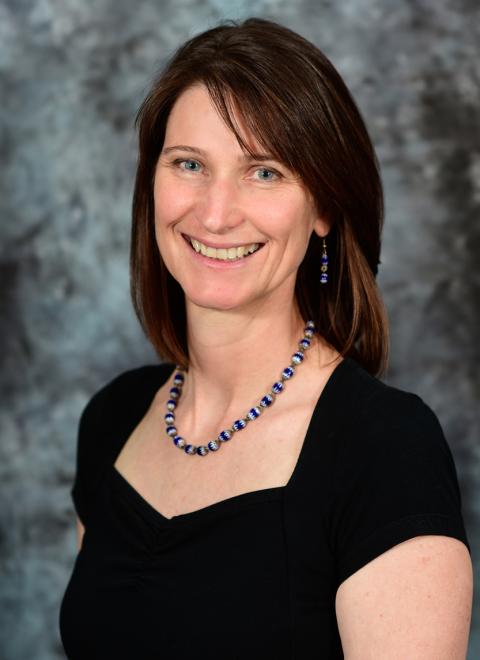
Alison Watts, Ph.D. - Research Assistant Professor, Civil and Environmental Engineering
Dr. Alison Watts is a Research Assistant Professor at the University of New Hampshire, Department of Civil and Environmental Engineering. Dr. Watts’s main research interest include working with regulatory agencies and resource managers to develop effective and transferable methods for monitoring marine ecosystems. Most of her current work is focused on ways to use DNA in environmental samples (eDNA) to support management of marine systems. eDNA can be used to characterize whole communities ranging from bacteria to whales, or can be targeted to identify the presence of specific species including invasive or rare organisms. Our lab at UNH is currently developing fish monitoring and biodiversity assessments at estuarine sites around the country, collecting pilot information on aquaculture monitoring, and developing methods to detect invasive species in both marine and freshwater systems. Other areas we are exploring include monitoring fish recovery after dam restoration, assessing the impact of offshore wind generation, and mapping ecosystem response to climate change. We look forward to discussing potential applications with interested partners.
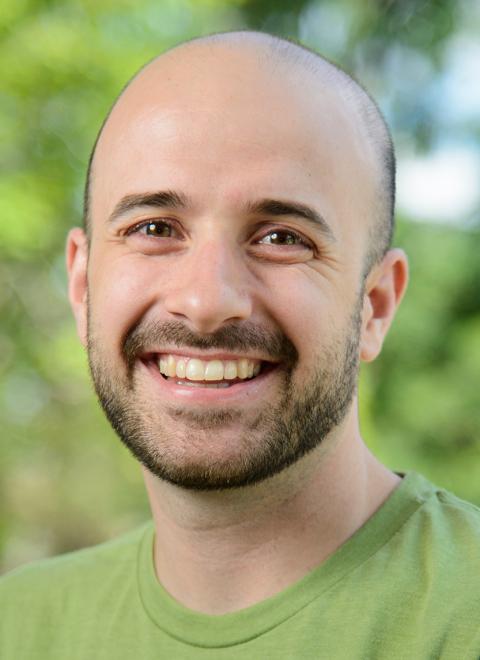
Easton White, Ph.D. - Assistant Professor, Biological Sciences
Dr. Easton White runs the Quantitative Marine Ecology lab at the University of New Hampshire. The lab is a team of scientists combining big data with mathematical and statistical tools to address the most pressing issues in the oceans. The lab addresses questions related to socio-ecological systems, species monitoring, fisheries, and sustainable seafood. A common thread throughout Dr. White’s work is the role of environmental variability, particularly rare events like heatwaves or global pandemics. The lab currently conduct research in Madagascar, the Eastern Tropical Pacific, and New Hampshire. Dr. White’s research is funded by the National Science Foundation and private donors. His work has been highlighted in major scientific journals and media outlets throughout the world.
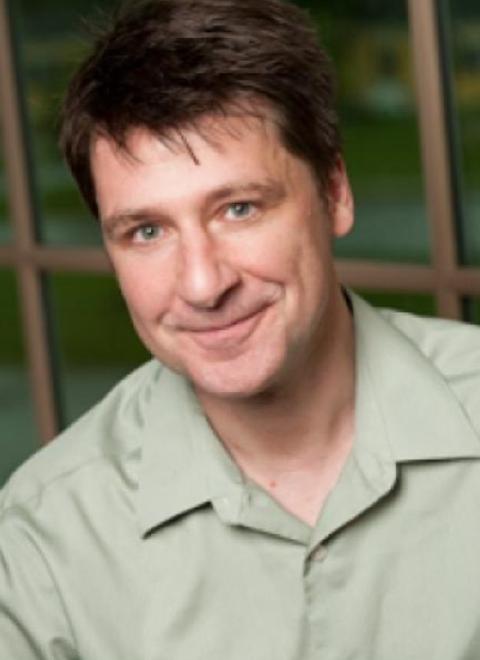
Martin Wosnik, Ph.D. - Associate Professor, Mechanical Engineering, Ocean Engineering; Director, Center for Ocean Engineering
Prof. Martin Wosnik joined the Mechanical Engineering faculty in the spring of 2008. Before joining the UNH Mechanical Engineering faculty, he worked as Assistant Research Professor in the Thermo and Fluid Dynamics Section at Chalmers University of Technology in Gothenburg, Sweden, then as Research Associate at St. Anthony Falls Laboratory at the University of Minnesota. Before coming to New Hampshire, Prof. Wosnik was Senior Flow Engineer at Alden Research Laboratory in Massachusetts, a national flow engineering firm conducting a wide variety of hydraulic studies for electric power utilities, architect-engineering firms, equipment manufacturers, and governmental agencies.
Prof. Wosnik’s research interests are in the area of fluid and thermal sciences with an emphasis on renewable energy applications, including ocean renewable energy (tidal, wave, wind), turbulent flows, high-speed hydrodynamics, cavitation, flow measurement and hydraulic modeling.
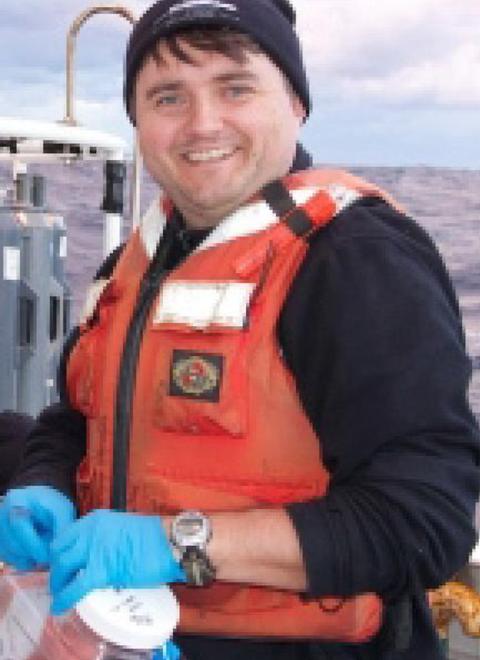
Kai Ziervogel, Ph.D. - Director, Ocean Process Analysis Laboratory; Associate Research Professor
Biological processes are major drivers of the ocean’s carbon cycle as primary producers in the surface ocean convert inorganic carbon into organic matter, fueling secondary consumers within microbial food webs. A major focus of my research is to understand variations in microbial activities among microenvironments that act as activity hotspots in the water such as millimeter sized organic matter aggregates, known as marine snow.